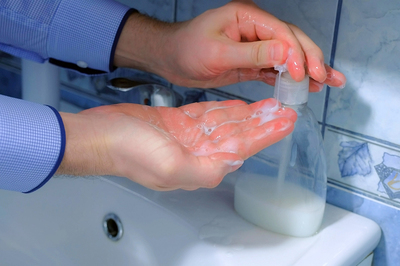
OCD and addiction often co-occur, thereby complicating treatment.
In recent years, knowledge about the relationship between substance use and mental disorders has continued to grow. According to the epidemiologic Catchment Area (ECA) study, the prevalence of a psychiatric disorder is 44 percent among people with alcohol disorders, and skyrockets to 64.4 percent among people with other drug-use disorders. Furthermore, research shows that the majority of mental disorders are more common in people with a history of substance-use disorders compared to those without such a history.
Obsessive-compulsive disorder (OCD) is one example of a mental disorder which frequently co-occurs with SUDs. Here’s a closer look at OCD, its relationship with SUDs, and the importance of finding a program which acknowledges both OCD and the SUD in the treatment plan.
What is OCD?
“OCD is a mental disorder characterized by intrusive, obsessive thoughts and compulsive, repetitive behaviors that often significantly interfere with work, school, relationships, and other activities and responsibilities,” says the Substance Abuse and Mental Health Services Administration (SAMHSA). According to the World Health Organization (WHO), OCD is one of the world’s top disability causes.
There are many kinds of OCD obsessions and compulsions encompassing everything from sex and religion to cleaning and contamination. Other common obsessions and compulsions include aggressive impulses, the need for order, repeated doubts, sexual imagery, checking, hoarding, mental acts, ordering, reassurance-seeking, and repetitive actions.
Researchers have determined that 90 percent or more of people with OCD have had at least one other diagnosable mental or substance use disorder in their lifetimes.

Frequent hand washing is just one of many OCD compulsions.
OCD and SUDs
SAMHSA further reveals that OCD and SUDs frequently co-occur. According to SAMHSA, while the lifetime prevalence for OCD is between 1.6 percent and 2.3 percent, the prevalence spikes to anywhere between 10 and 40 percent for people with SUDs.
Not only that, but individuals with both conditions may have increased levels of impairment in overall psychosocial functioning than those with just an OCD. They may also be at increased risk for becoming suicidal.
Many SUDs develop because individuals are attempting to cope with something in their lives. The link between OCD and SUD is no different: research indicates that some people may turn to substances in an attempt to manage their OCD symptoms. This can lead to a dangerous cycle and escalating problems over time.
The Integrated Treatment Imperative
In the same paper, SAMHSA states, “When an SUD and OCD co-occur, both conditions need to be addressed because the consequences, assessment, treatment, and recovery can be more complicated for each disorder when they occur together.” This is called “integrated treatment,” and it refers to the holistic treatment of an individual, including their medical and medication issues, mental disorders, and SUD treatment.
Unfortunately, the majority of people with co-occurring SUDs and OCD get treatment for the latter. Furthermore, misdiagnosis is also common. Many people with SUDs may enter treatment without a diagnosis of OCD. As such, trained counselors can help screen for and diagnose OCD in order to ensure the necessary joint treatment.
Also worth keeping in mind? OCD, in and of itself, is far from the only mental disorder which frequently co-occurs in people with OCD. Others include depression, generalized anxiety disorder, social phobia, specific phobias, panic disorder, and post-traumatic stress disorder.
The conclusion, according to SAMHSA? “The high incidence of co-occurring disorders makes clear how valuable integrated treatment programs can be.”
St. Louis drug rehab center Harris House has been providing targeted, integrated treatment for SUDs and co-occurring disorders like OCD for more than 50 years. If you or someone you love is struggling with addiction, addiction treatment at Harris House may be the solution you need to move forward in your life and get on the path to wellness. Call us to learn about admissions today.







